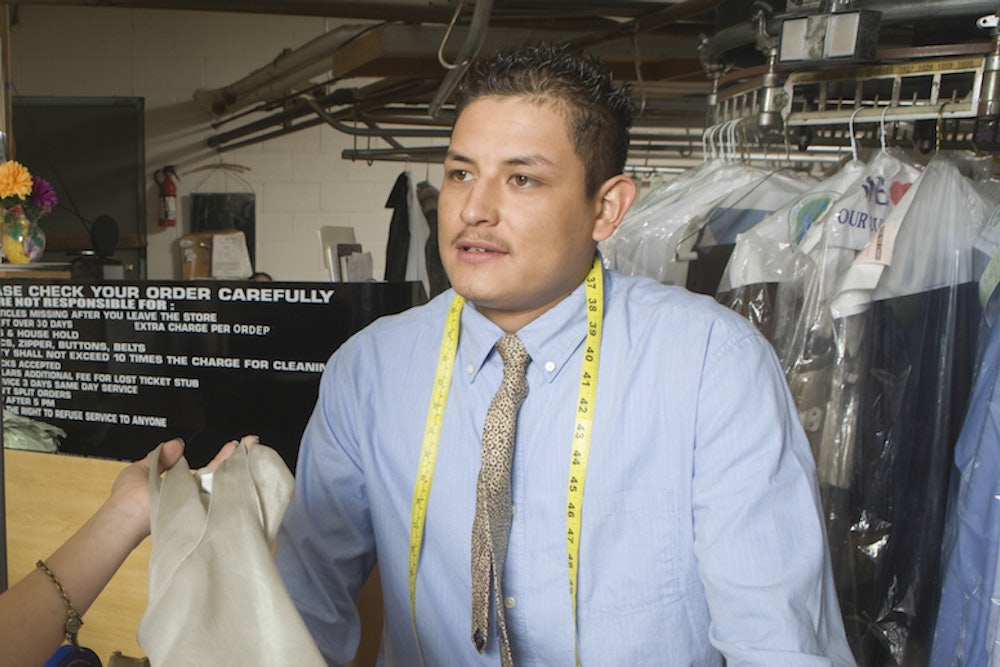There are some gender-based inequities that are brought up so many times that, awful as they are, they've lost the power to shock. Women make 77 cents on every dollar that men make, and I've heard that 77 times in the last month alone. But I hadn't realized, until recently, that women are frequently charged more at the drycleaner than men are. (Add this to the hair salon, and to health-insurance signups, etc.) This is despite the fact that women's clothing is often smaller than men's, and for a basic shirt or pair of pants, hardly more complicated to clean. Gender-based price discrimination is, in fact, illegal, but businesses justify different prices by saying some garments are more labor-intensive.
One drycleaning chain, ZIPS—which recently received an infusion of venture capital to expand its empire—has decided to organize an entire ad strategy around pointing out this disparity. Essentially, the chain is betting that old-fashioned feminist umbrage is a good way to draw in customers for its flat-rate pricing ($1.99 per garment). A recent ad for the company:
In virtually all aspects of life, women share the same rights as men. But for some reason, that principle hasn't quite made its way into drycleaning ... ZIPS Drycleaners says, that's just not right. It's bad enough that women make 77 cents on every dollar, they're also expected to pay more to clean the clothes they wear to those jobs?
This isn't the first time feminism has been used to sell something, of course. Just recently, Pantene caught a certain amount of flack in the blogosphere for using the language of the movement to sell the idea that beauty products can improve the soul; "pandering" was the word Business Insider used to summarize feminist anger about it.
As for ZIPS, says Patterson, sales are way up since they started running the feminist ad. A drycleaners' trade group has asked the company to pull that ad, says Patterson, as well as a different one that simply highlights the company's unusual, undercutting price strategy. "The best advertising tells the truth, even though people laugh when I tell them that," he says. "Discrimination has never been a good business model."
Image via shutterstock.com
